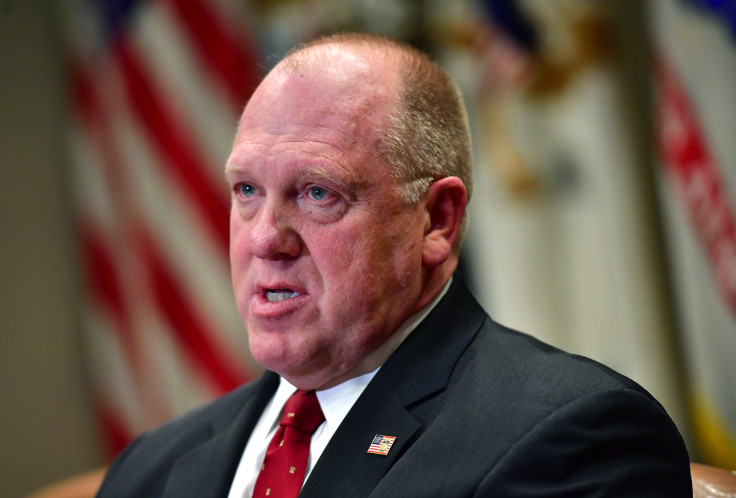
With just one week left until President-elect Donald Trump officially assumes office, the incoming administration is looking into using military bases to boost what soon-to-be officials are dubbing as the largest deportation operation in American history.
Trump's incoming border czar, Tom Homan, hinted at the new practice in late-December. The incoming administration has already discussed plans to declare a national emergency on immigration on day one of his presidency, which would allow them to divert money from the Pentagon for immigration purposes.
"It's something that's certainly on the table," Homan said in a wide-ranging interview, adding that specific plans haven't been drawn up yet. "We're waiting to see what Congress is going to give us for funding."
"Look, we've got to end catch-and-release— and that includes family units, too," he continued, using a phrase sometimes used to describe migrants' being released from detention while they await immigration court proceedings.
Immigration and Customs Enforcement (ICE) stopped detaining families who enter the country illegally with their children not long after President Joe Biden took office, though administration officials last year considered reviving the practice, according to NBC News.
The incoming border czar is a divisive figure, often criticized by his detractors for backing the "zero tolerance" policy that sparked bipartisan outcry during Trump's first term. That policy allowed young children to be separated from their parents.
But Homan has seemingly backtracked from that position, saying he does not foresee migrant children being separated from their parents on a large scale in Trump's deportation efforts, NBC News reports.
"I don't envision that at all," he said.
Homan also asserted back in December that he views the military as a "force multiplier" that could help with transportation, administrative duties, intelligence analysis and building infrastructure such as large tents that could serve as short-term detention facilities, The Wall Street Journal reports.
Military troops can't by law make arrests on U.S. soil, but Trump and his team hope they can provide assistance in other ways to drive up deportations.
In some ways, this wouldn't be a new practice. In fact, President Biden and President Barack Obama used military bases throughout their administrations to hold large numbers of unaccompanied migrant children who had crossed the border before releasing them to family members, according to The Wall Street Journal. Biden went a step further, housing evacuees from Afghanistan on bases as refugee agencies worked to find them more permanent homes.
But while Republicans in the federal government prepare for mass deportation, one essential question remains largely unanswered: funding.
Homan himself, as well as other top Trump administration officials, have been vague about how much money mass deportation efforts, as well as building a border wall, would take. Although they have failed to give a number on their plans, Homan said he hopes to know more about the project's funding soon.
Asked back in December, if border wall funding was still necessary even if it ends up taking away from the resources needed for a mass deportation effort, Homan responded: "I think it has to be a mix, right?"
"The border wall is going to help slow down the incoming. You've got to plug the holes to stop the water coming in the boat. So it all works together," he said.
© 2025 Latin Times. All rights reserved. Do not reproduce without permission.




